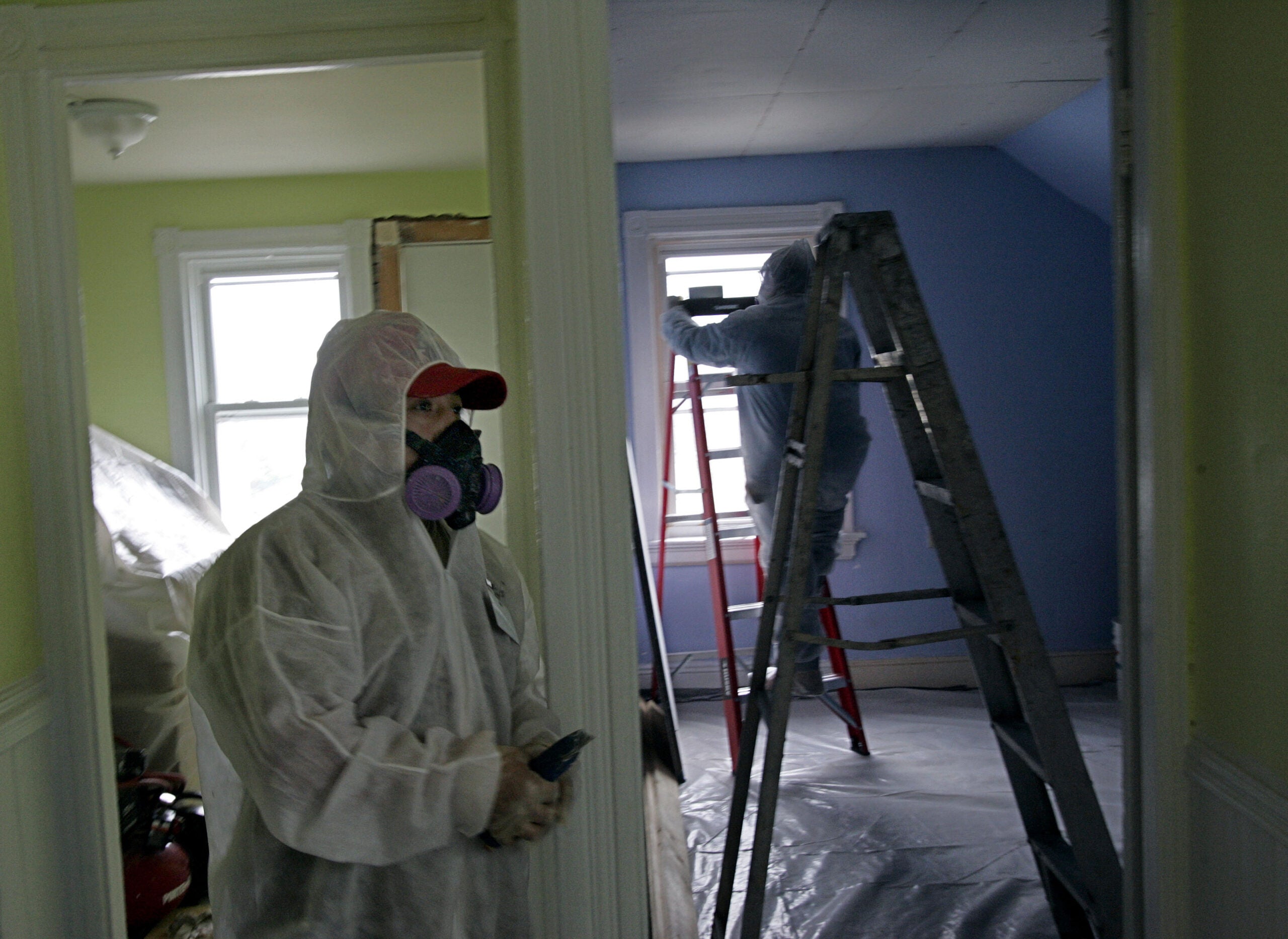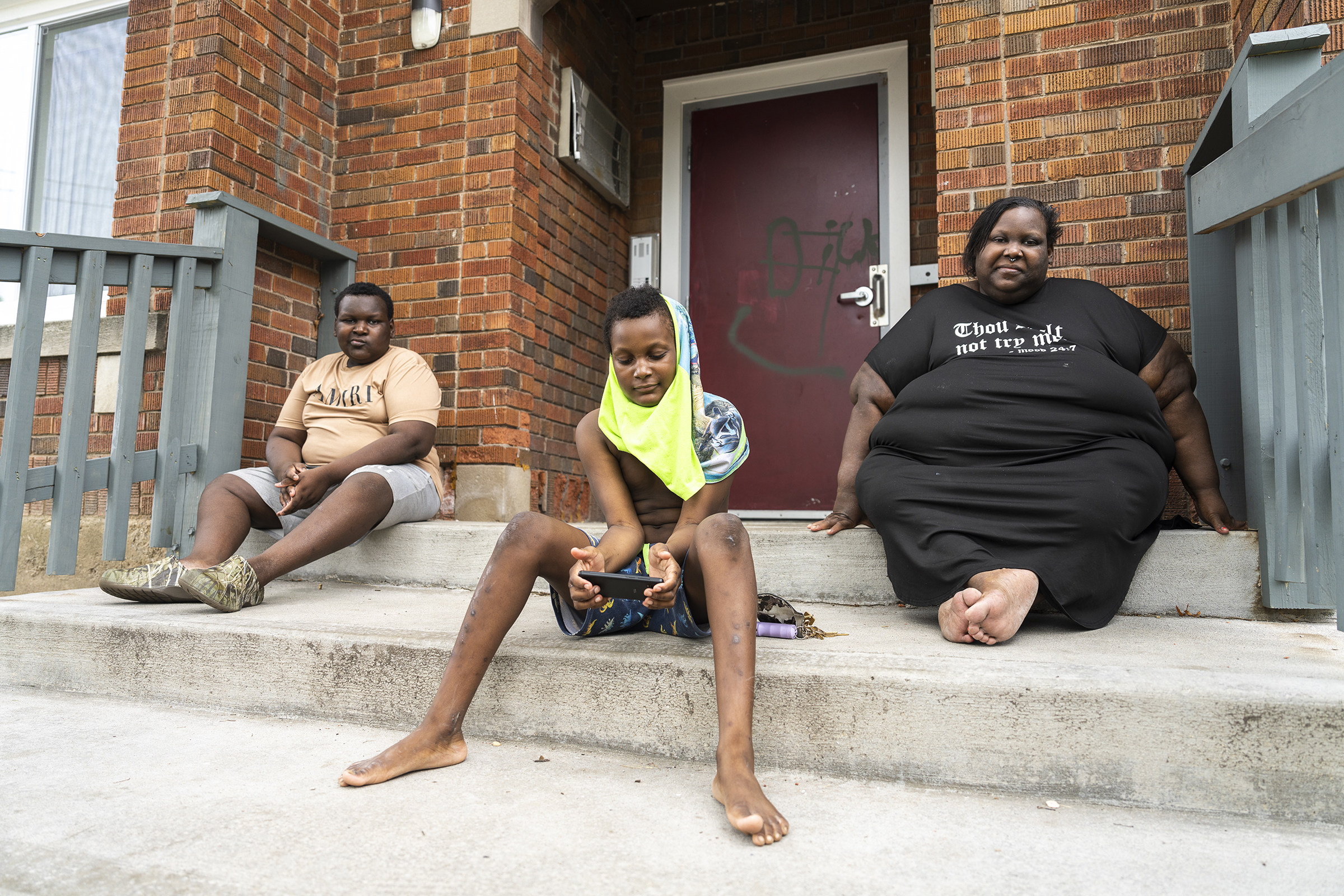Wisconsin will receive $7.8 million in funding from the U.S. Department of Housing and Urban Development (HUD) to reduce the risk of lead exposure and other home-health risks, according to an announcement from the agency Thursday.
HUD Deputy Secretary Brian Montgomery and U.S. Rep. Bryan Steil, R-Wis., announced the funding during an event at the Kenosha County Job Center Thursday morning, along with local officials from Kenosha County.
“Today, we are renewing our commitment to improving the lives of children and families by creating safer and healthier homes,” Montgomery said in a statement. “At HUD, one of our primary priorities is to protect families from lead-based paint and other health hazards, and these grants will help states and local communities do precisely that.”
Stay informed on the latest news
Sign up for WPR’s email newsletter.
More than half of the funding, $4.4 million in total, will go to Kenosha County. The remaining $3.4 million has been awarded to the state Department of Health Services to disperse to specific counties across the state.
“Every child and family in southeast Wisconsin deserves to live in a safe, healthy, lead-free home,” Steil said in a statement. “Today is the result of federal officials listening to southeast Wisconsin’s needs and providing resources to support our community.”
Vox and the Washington State Department of Health compiled a map that looks at the risk of lead exposure for every census tract in the U.S. using data on the age of houses in an area and the level of poverty, two key indicators for risk of lead exposure, according to public health officials. Based on that map, 13 census tracts in Kenosha County have a high or very high risk of lead exposure.
Dr. Jennifer Freiheit, health officer for the Kenosha County Division of Health, said the county was humbled and appreciative of the grant.
“There is still a lead paint problem out there and it leads to long-term health effects, so this will greatly help enhance our ability to help mitigate that,” Freiheit said.
The agency said it’s dispersing close to $165 million to state and local governments nationwide through two of its grant and funding programs.
The first is HUD’s Lead Based Paint Hazard Reduction grant program, which provides funding to deal with cleanup and abatement costs stemming from lead paint in homes of low-income families in urban, rural and suburban areas. The state of Wisconsin will receive $3 million dollars under this program and Kenosha County will receive $4 million in funding.
The second is the agency’s Healthy Homes Supplemental funding, which provides funding to deal with other home-health risks like mold and pest control. Both the state and Kenosha County will each receive $400,000 in funding under this program.
Elizabeth Truslow-Evans, the lead and asbestos section manager at DHS, said it’s important to address lead exposure now while children are spending more time at home during the coronavirus pandemic.
“I think this is a critical during COVID, while kids are spending more time in their homes, to think about fixing these homes and these programs can do just that,” Truslow-Evans said.
The HUD money comes in addition to a pre-existing statewide lead abatement program from DHS known as the Lead-Safe Homes program. Individuals interested in getting enrolled in that program can get in contact with the department through the program’s website.
The program also provides funding to cover some costs to train contractors in lead abatement. Truslow-Evans said that training is crucial because there is a shortage of workers with the specific training required by the federal government.
According to a summary of the statewide and Kenosha County projects provided by HUD, Kenosha County estimates it will use the funding to address lead hazards in 204 homes, and DHS will service 125 homes with the funding.
Wisconsin Public Radio, © Copyright 2024, Board of Regents of the University of Wisconsin System and Wisconsin Educational Communications Board.





